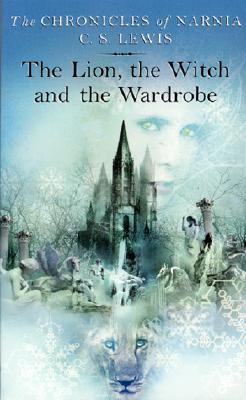I came up with this during French class one day (even though I don't drink):
The Official "Mysteries of Udolpho" Drinking Game
(Warning!: You're liable to pass out before you reach Vol. II)
Take a drink every time:
--St. Aubert/Valancourt/Emily/the narrator departs on a 5 page tangent to admire the scenery
--Emily gets confused
--Emily faints, or almost does
--Emily is manipulated by relatives
--1 beer for when Emily refuses to elope with Valancourt
--have a mixed drink of your choice whenever a character composes poetry
--a chapter is headed by a quote from a deservedly forgotten poet
--the narrator/characters remark on how happy the simple peasants are in their romantic poverty
--Montoni is described in ominous terms
--Emily sits in her room and weeps/sighs/gazes at the scenery
--something "supernatural" happens and is later explained away with an absurd plot contrivance
--murder is hinted at
--random acts of violence occur
--Valancourt wishes he had money to marry on
--Emily decides that she's too well-bred to tell her aunt to fuck off
--you mentally shout "My GOD woman! Get a fucking EDITOR!!"
--a sentence continues for half a page and contains at least 5 commas.
--you wish Emily would die in a violent gondola accident
--Italians are described as dark, passionate, dissappated, vain, and extravagant
--you suspect Radcliffe was paid by the word.
This novel is wildly improbable, historically inaccurate, sexist, classist, engages in flagrant stereotypes, starts off too slowly, goes on for far too long, has aged terribly, and somehow is thoroughly enjoyable. Well maybe not "thoroughly," maybe only "mostly." Granted, I didn't really warm up to it until Volume II, when things actually started to happen, but once I stopped taking it seriously and began to view it as a slightly absurd fairy tale, it was surprisingly fun. With the exception of
Frankenstein, which I loathed, I've never really read Gothic fiction (old school 18th century gothic fiction, not modern stuff). I think the
Mysteries of Udolpho is like the literary equivalent of a B-movie, the kind film geeks love, where you revel in its awfulness. It's not that it's
awful, really, it's just that it was written when the novel was still a relatively new form and nobody really knew what they were doing with it; novels in the 18th century were the red-haired step-child of literature, relegated to the province of aristocratic and bourgeouis ladies, not the stuff of high artistic endeavor. Literary men didn't develop the novel; anonymous, more-or-less self-educated women did. But despite it's unwieldy construction and long-winded didacticism, Radcliffe manages to create great suspense and atmosphere, and it keeps you hooked despite it's flaws. Emily didn't annoy me nearly as much as I thought she would (I just felt a "violent gondola accident" might pick up the pace a bit). Valancourt is bland and boring; I started rooting for M. Du Pont towards the end there (I always did love the underdog, and I have a weakness for stories of unrequited love). I was disappointed there was no show-down with Montoni; he just kind of fades out of the story. Still, despite it's short-comings, it's got gloomy Gothic castles, towering mountains, raging oceans, hidden passages, murders, sword-fights, infidelity, pirates, secrets, dark forests, Venetian canals, mysterious sounds, black veils, love, jealousy, corpses, nefarious plots, lost fortunes, smugglers, banditti, ghost stories, and revenge, so how could I resist those charms? A thoroughly horrid book; Catharine Morland and her peers definitely got their money's worth.


